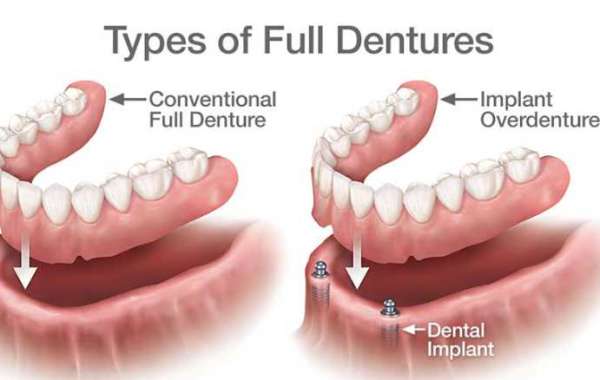Many people underestimate the impact of tooth loss. Teeth that have fallen out and were not replaced in time, or an abscessed tooth that has been removed, will not grow back.
While some people can tolerate these embarrassing gaps left by missing teeth that also make it difficult to eat and speak, most dental patients cannot.
Whether you've lost your teeth due to accident, illness, or overuse, you've probably played around with the idea of dentures and implants. The only problem is, you don't know which treatment option will be the most effective for your smile.
Only your dentist will be able to recommend the best dental replacement treatment option for your needs.
Below is information on dentures and implants that you can use to discuss your treatment options with your dentist and help you get a better idea of what would be the best option for you:
Dentures
Dentures are the long-standing dental replacement treatment that is the best option for patients who have lost most or all of their teeth. Dentures have come a long way since the days of your grandparents or even your parents. While dentures today work the same, most are made with improved technology such as 3D printing and imaging. The result is a prosthesis that fits more securely and comfortably and looks more like the patient's natural teeth.
Most modern dentures still require tacky glue or glue to secure dentures in place and need to be removed when eating and overnight for cleaning.
Even partial dentures take time to get used to and some initial discomfort can occur, even with dentures that fit better.
Dentures are the best option for patients with a lot of missing teeth, they don't mind the inconvenience of removing them while eating or taking them out for soaking and cleaning every night.
Dental implants
While dentures work best to restore smiles to patients with many missing teeth, implants are ideal for patients with one or two teeth missing here and there. A big gap in a smile is as embarrassing as having no teeth to show. Additionally, even missing a tooth can lead to additional dental health issues, such as crooked teeth, down the road.
Dental implants are metal screws, usually titanium, that are inserted into the patient's jawbone and covered with a crown or false tooth. Dental implants fill the embarrassing gaps in the smile and also fill the gaps to prevent further dental problems from arising.
Dental implants can also be a good option for patients who are missing a few teeth in a row. Dental bridges are a series of crowns that are anchored to the jawbone on both sides by dental implants.
Unlike dentures, dental implants are permanently attached to the jawbone. They can bear to bite, eat, and drink, and can speak clearly. With dental implants, the patient's mouth will feel and function normally with little to no discomfort.
Dental implants have a quick recovery time, which makes them a good option for those who want their smile to look beautiful quickly.
The only reason a patient will not be eligible for dental implants is that they have weakened or damaged jaw bone tissue, which reduces jaw strength.
Patients with missing teeth, who do not want to face the drawbacks, inconveniences, and possible discomfort of dentures, would be best suited for implants.
A third way
For some patients, there is another option: four full dentures. This dental replacement treatment combines dentures and implants to produce permanent dentures that look and function like your natural teeth. You can even take care of these dentures as you would normal teeth.








